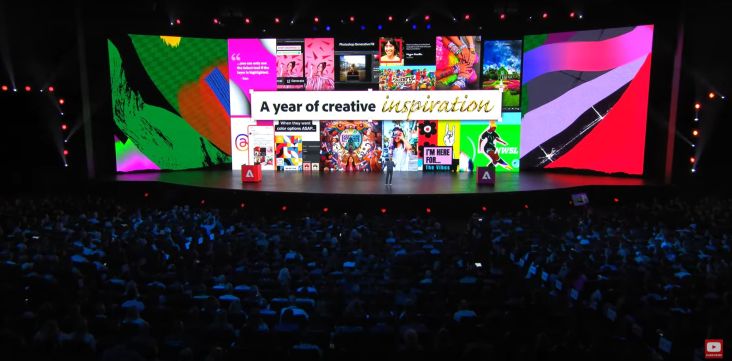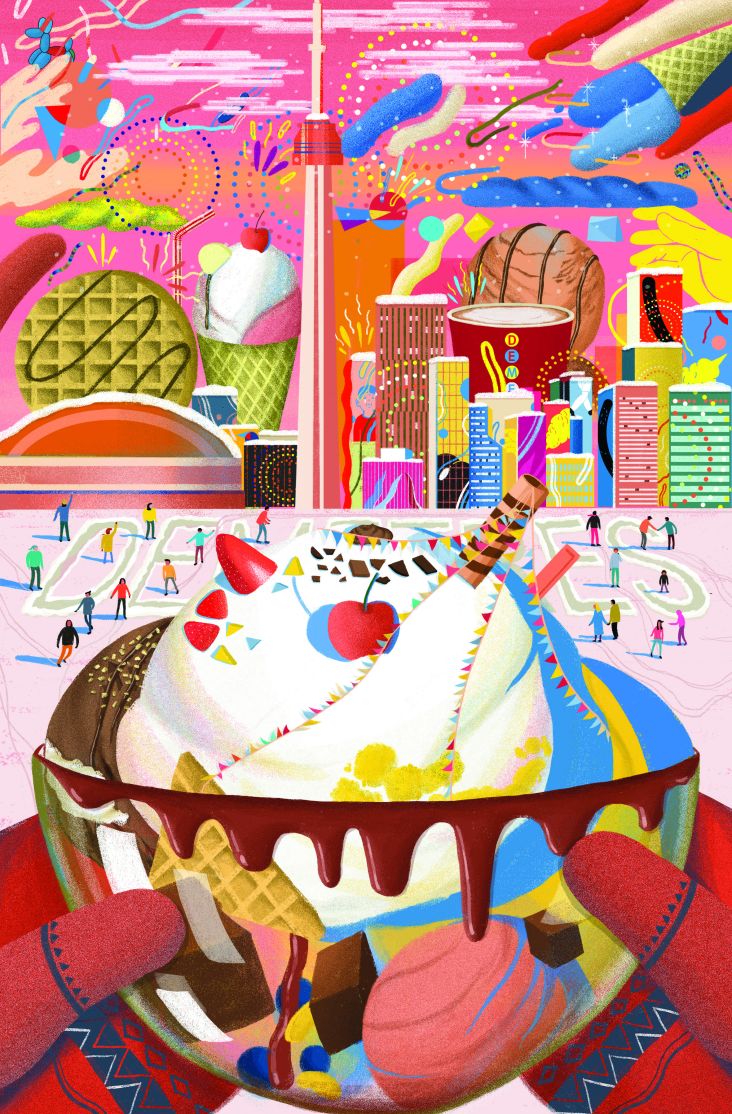Candela Kerze confronts her demons with meme and video game-inspired illustrations
Madrid-based illustrator Candela Kerze specialises in creating vibrant artworks dealing with themes of mental health and anxiety. We caught up with her to learn more about her creative approach and why memes and video games are important in her work.
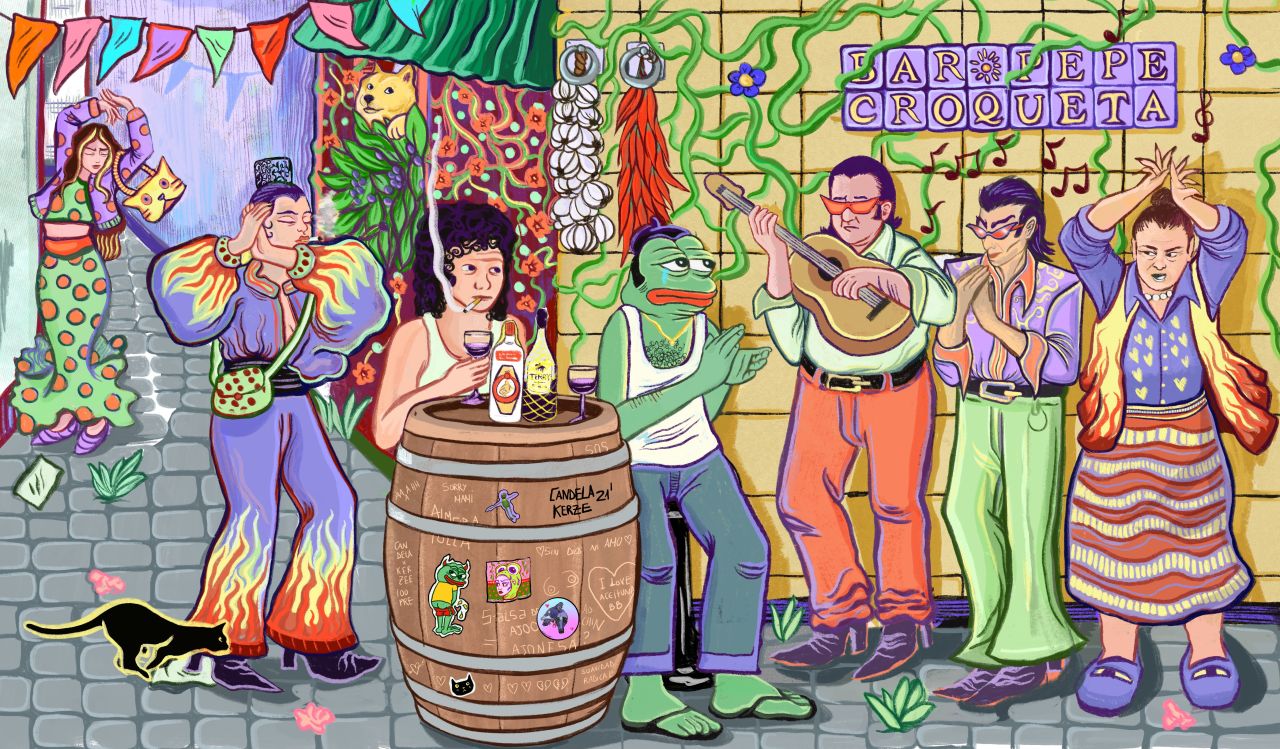
Garish, edgy, maybe even hostile. These are some of the first impressions it's easy to draw from the work of Galician artist Candela Kerze, whose illustrations have appeared in Womanly Magazine, on Reteena festival posters, and splashed across the pages of Vice.
Depicting everything from haunted reflections to literally thorny relationships bound together with spiky vines, Candela's work revolves around anxiety disorders and examines how sensitive people such as herself survive in an openly hostile world. Paired with a vibrant colour palette and compositions that mix high concepts with internet iconography, the result is a portfolio that is deeply personal while also humorous.
Speaking to Creative Boom, Candela says her work is "a reflection of my inner world". It's a world characterised by her struggles with generalised anxiety disorder, a condition she has combated since she was a teenager. "I use art to express my vision of the world," she says. "Fear is always with me, and art helps me to confront the world and fight my demons like a video game."
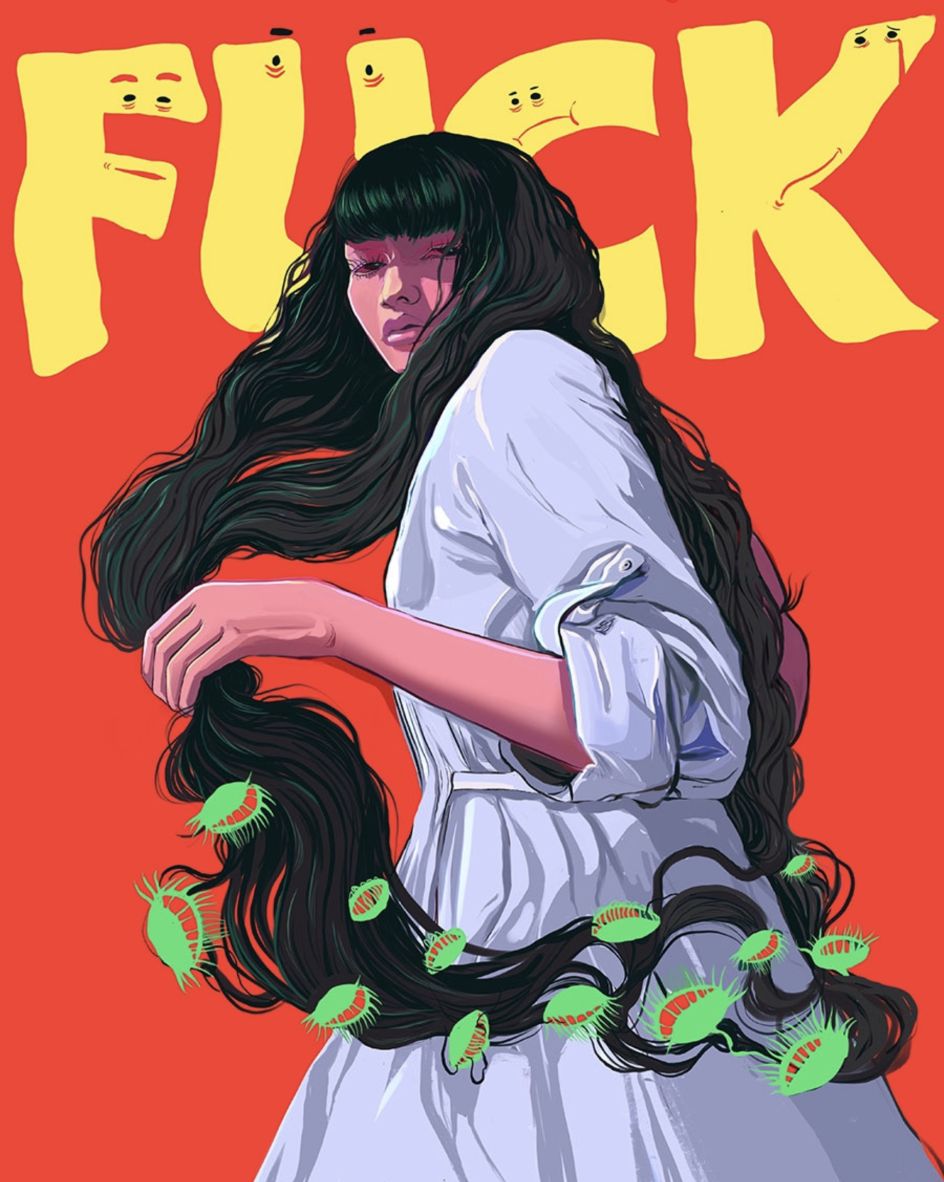
Inspired in part by the situated knowledge theory of Donna Haraway, Candela likes to talk about the things she feels and express how her mental disorder affects her daily life. She says it's all part of how people are starting to become more aware of mental health, and it's a cause that she feels should be more economically and socially affordable.
"Some older generations did not have the required tools or the information to heal their traumas," she says. "We still have a lot of work to do, but I think it is important to share this reality and stop normalising living in survivor mode or struggling in silence. This world is sometimes too much, and we need more empathy and emotional intelligence to understand ourselves so we can understand the realities of others."
Another big influence on Candela's work is the Californian artist and poet Lora Mathis and her theory of Radical Softness as a Weapon. The term, which recognises the power of emotional vulnerability and connection and how feelings can combat the hetero-patriarchal capitalist system, has helped Candela find strength in what she previously thought to be personal weaknesses.
"For years, I thought I was weaker than other people because everything affected me too much, but that vulnerability also helped me to generate tools to cope and become more aware of the world, why things happen, how they affect me, and what can I do to evolve and overcome them," she says.
"Now I think that being emotional, soft and brave enough to show your vulnerability is way more powerful than hiding these feelings and pretending that nothing affects you. That's an illusion you cannot sustain forever, and everything can explode sooner or later."
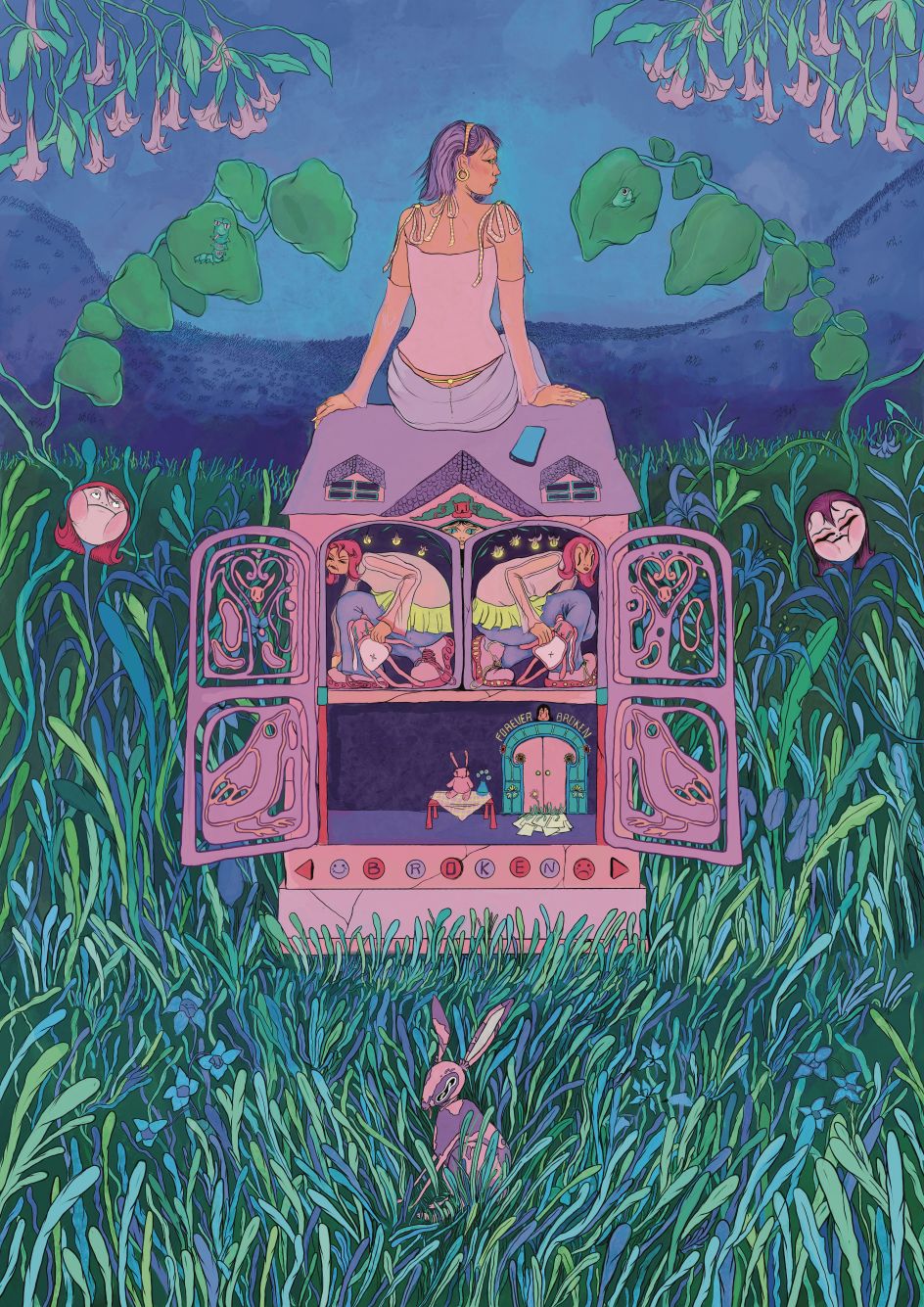
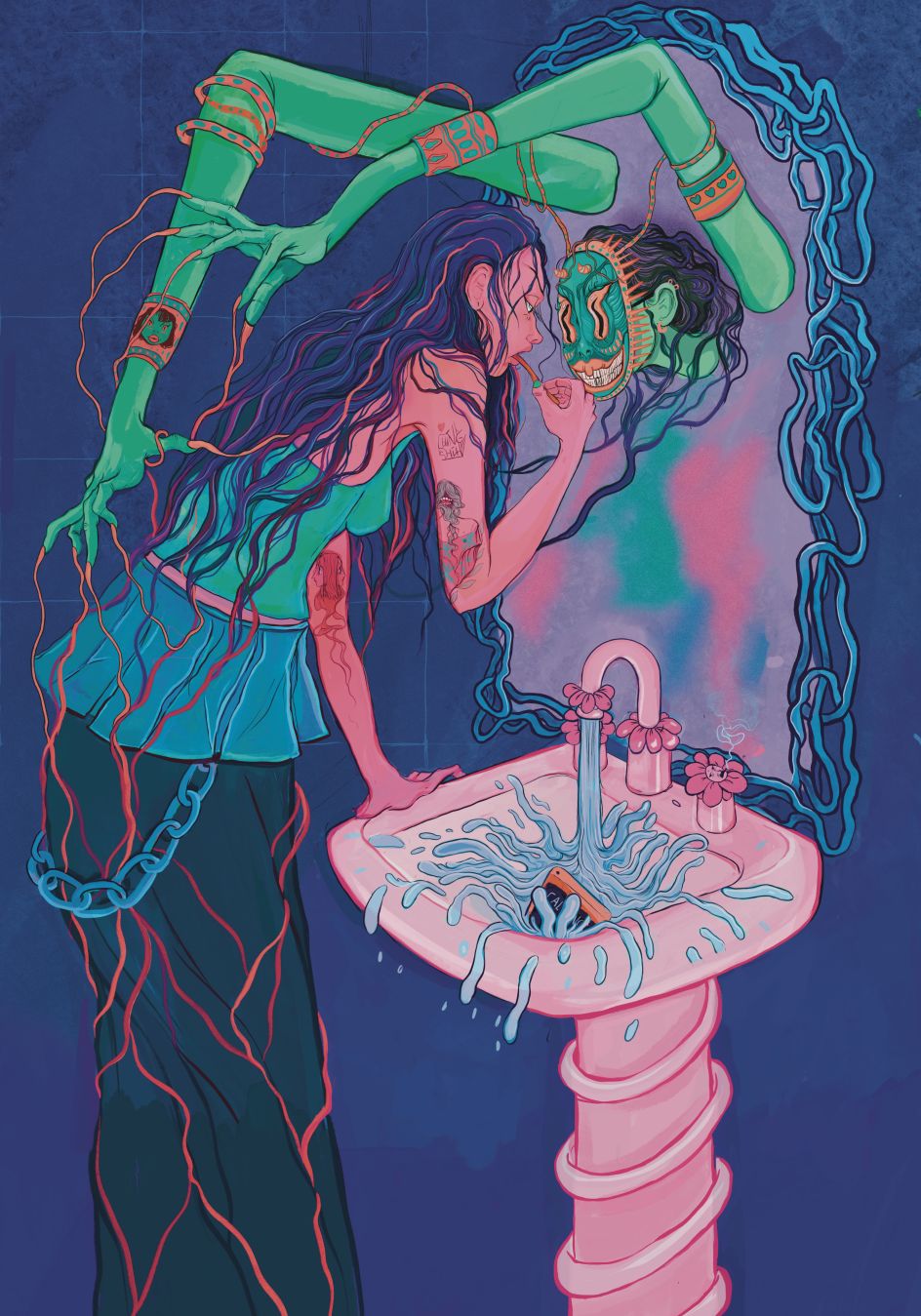
This balance of strength and vulnerability comes through in the cute but also powerful characters that populate Candela's work, not to mention the way she mixes socially accepted 'cute' colours with their opposites for dramatic effect. "I also like to play with contrasting symbols, such as flowers and spikes or soft expressions with sharp claws."
As for why she refers to memes and video games in her illustrations, Candela says that it's simply because they are part of her. "I love internet culture, and memes are part of my daily life," she adds. "Humour helps me to cope with my day, and meme culture helps me to make fun of my situation. As we used to say in Spain: my traumas, my jokes."
Indeed, Candela has been fascinated by video games since childhood, particularly indie games such as Hollow Knight and Blasphemous. And just as a generational shift has allowed discussions about mental health to flourish, it's also starting to notice the importance of video games that Candela has long realised.
"Some of these games have strong visual art styles and deep stories I think people undervalue," she says. "When I'm playing a game, they make me a more creative person. I think there is a type of video game for every kind of person, and people should be more willing to give them a try and not judge them. It's a whole world.
"I sometimes hide references to games in my illustrations, or memes or other things involved with my life. Maybe only one or two people will see and recognise them, but these topics are generational and a way to relate to others."
Besides her love of computer games, Candela has also had a lifelong love affair with colour. She has even had a particular colour palette ever since she was a child. "Colour comes naturally to me, and I like to let myself go," she reveals. "I struggle sometimes to achieve what I want, but I like experimenting with and changing colours.
"I don't usually make a colour palette that's defined because I like that part of my process to be more free and experimental. If a client specifies a colour palette, then of course, I do stick to it, but I really love that part of the process where I can play with colours, change them, and make big contrasts, even if it takes me more time. For me, colour is as important as the topic. You can say lots of things through it."
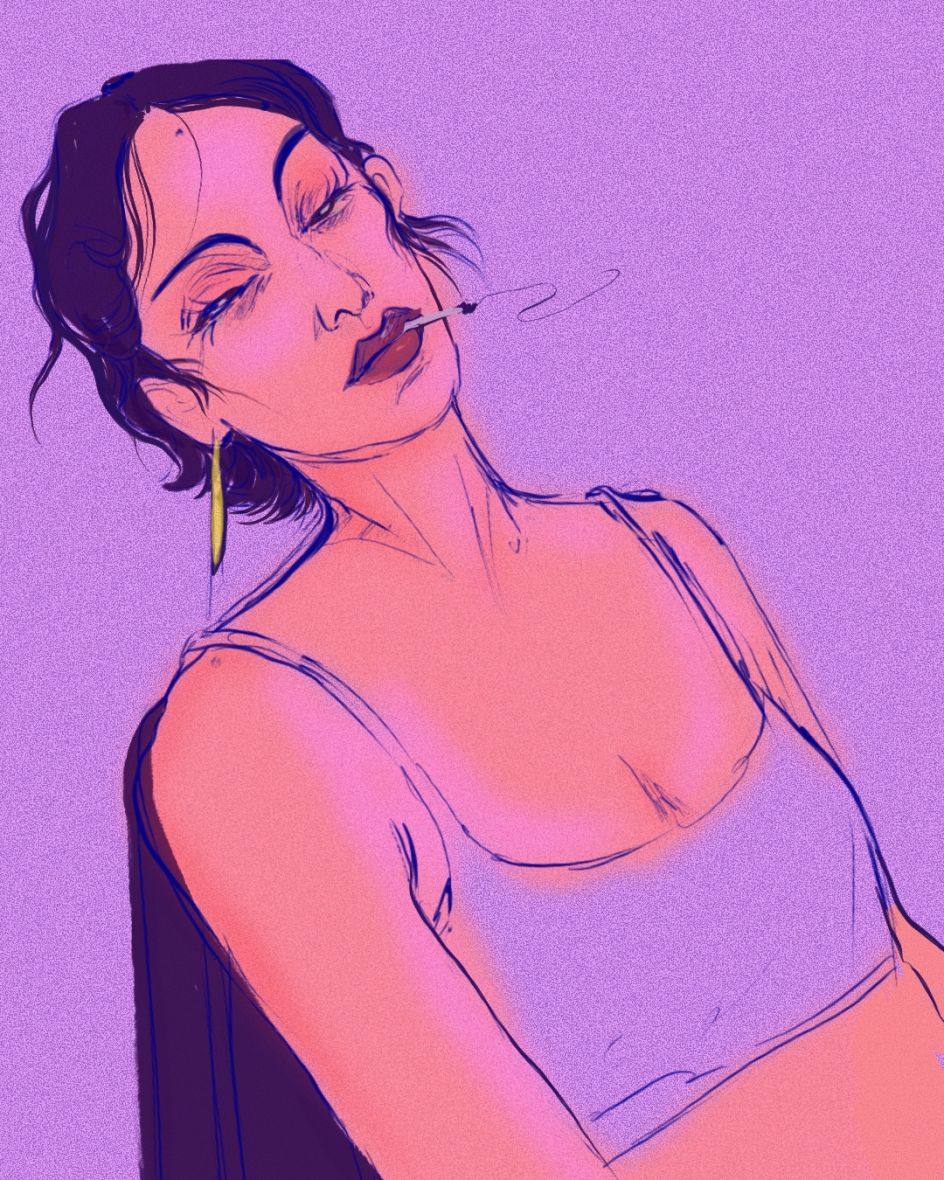
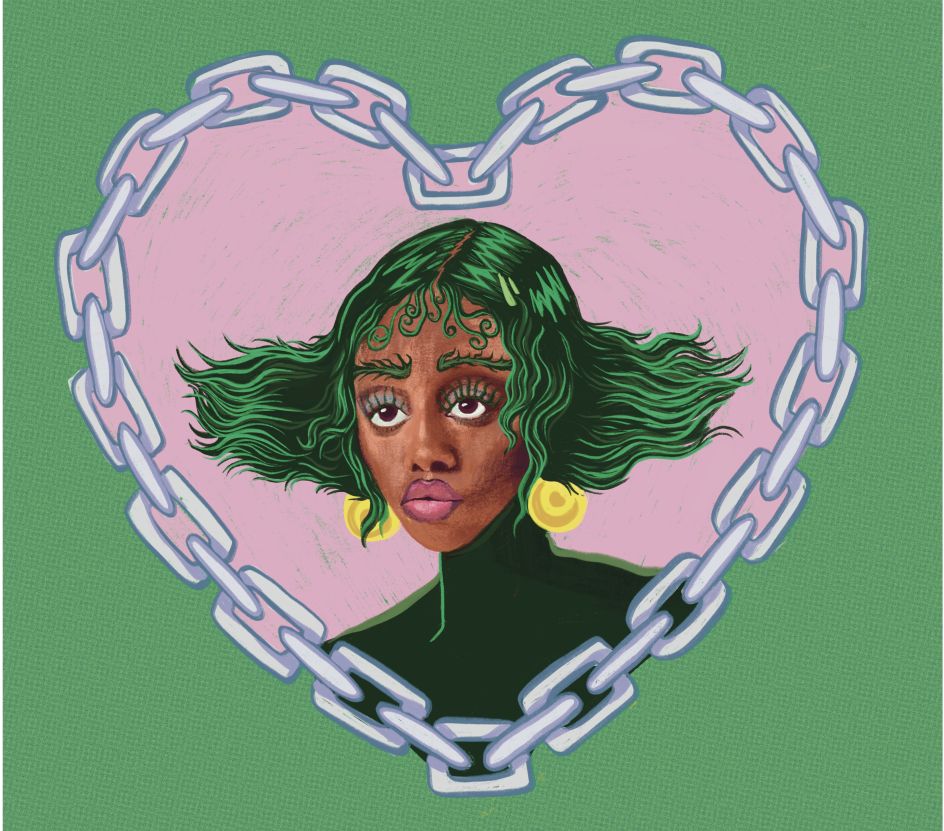
Like all art, though, Candela's illustrations are subjective. This means she is unsure how she expects people to feel when they look at her work. "I cannot control people's reactions, and it's still shocking when people tell me what they see in my art," she says.
"I like to connect with other people who can feel something, even if they feel things I didn't expect them to. I like the sensation of others reacting to my work. It's like another kind of connection between my mind, my hand and the observer. I feel like I connect with other people's feelings even if they know nothing about me."
As for the world in general, does Candela feel like it is becoming more accommodating to highly sensitive people such as herself? "I would like to think that, but I am unsure," she concludes. "The world is a complex place full of kindness and horrific things. Being highly sensitive doesn't make you a better person by itself; you just feel the world more intensely, both the good and the bad.
"I think we have a lot of work to do, especially regarding emotional education and support from a young age. When people don't know something, they tend to be more defensive and stick with what they already know, especially adults. I think it's okay to try to be a better person, even if it makes you question your behaviour.
"Nothing is black and white. We can always change and have to be less fearful to learn new things. We need to listen to different struggles, and we need to be less individualistic and judgemental. But it's hard to achieve, especially on social media."




 by Tüpokompanii](https://www.creativeboom.com/upload/articles/58/58684538770fb5b428dc1882f7a732f153500153_732.jpg)


 using <a href="https://www.ohnotype.co/fonts/obviously" target="_blank">Obviously</a> by Oh No Type Co., Art Director, Brand & Creative—Spotify](https://www.creativeboom.com/upload/articles/6e/6ed31eddc26fa563f213fc76d6993dab9231ffe4_732.jpg)








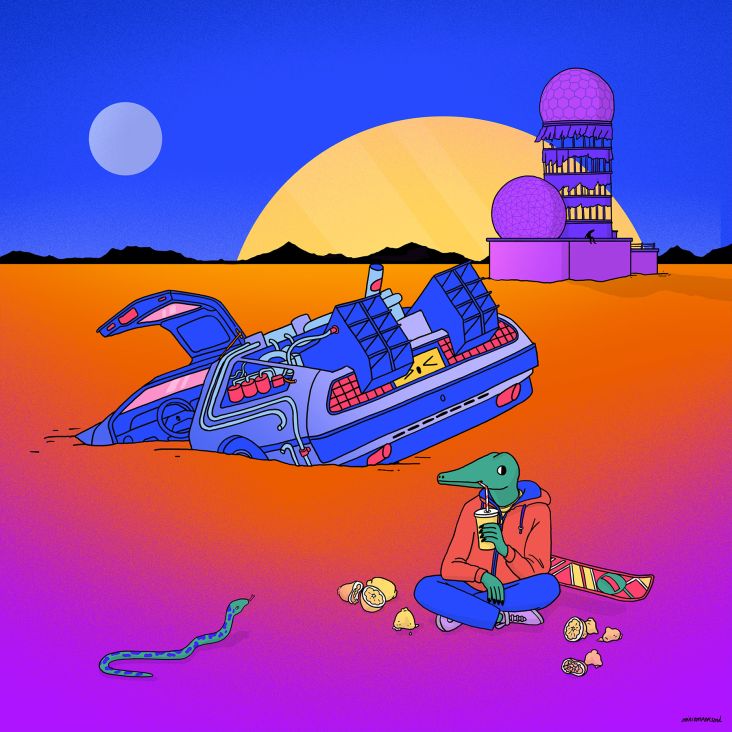
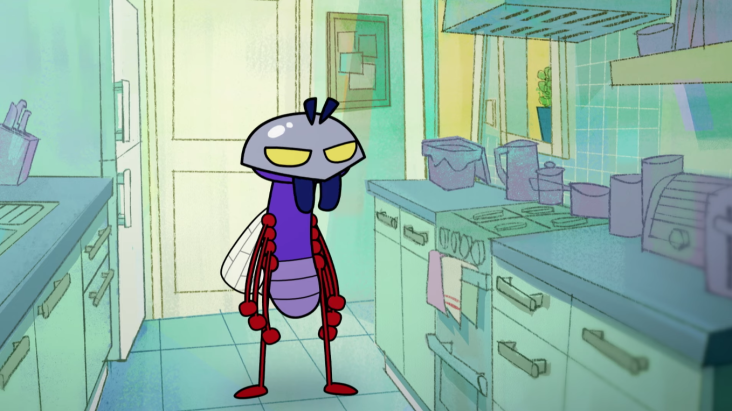
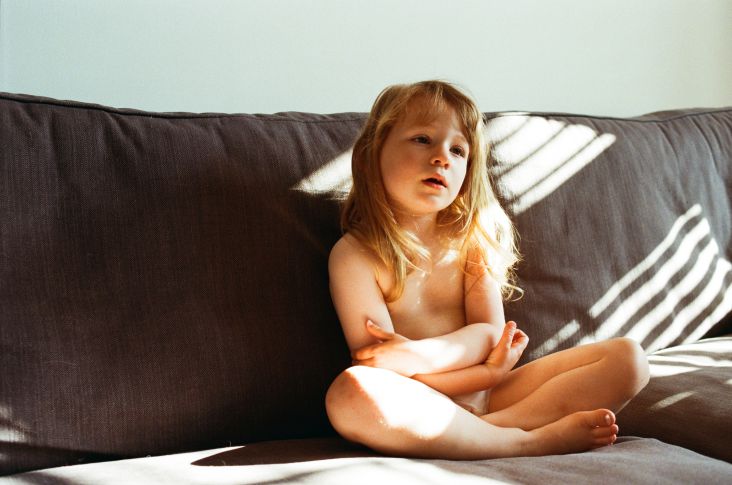
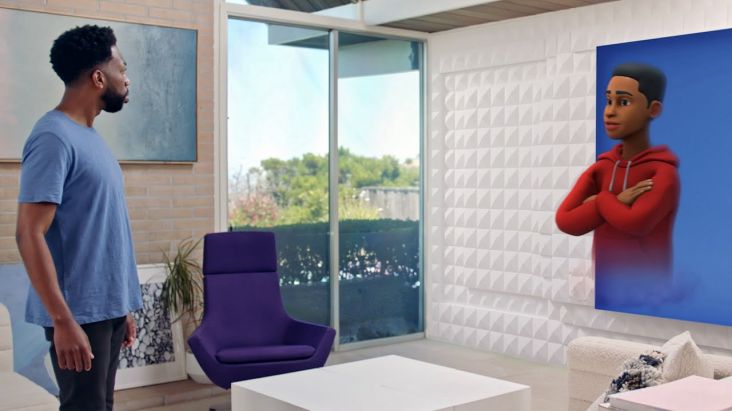

](https://www.creativeboom.com/upload/articles/b2/b2766633bc2fe360d0c3ab5571804bf1ff257e5d_732.jpg)
